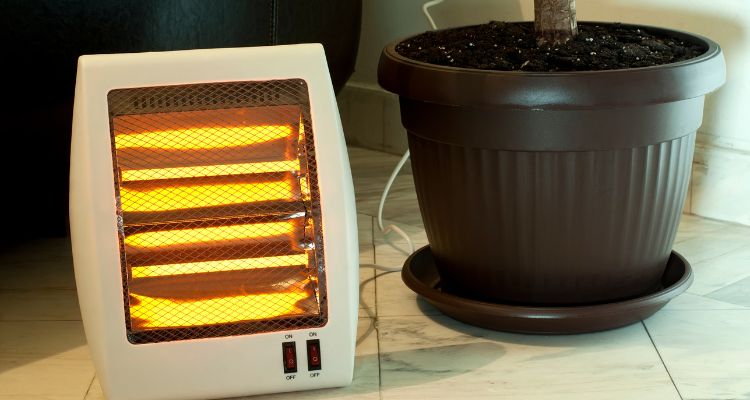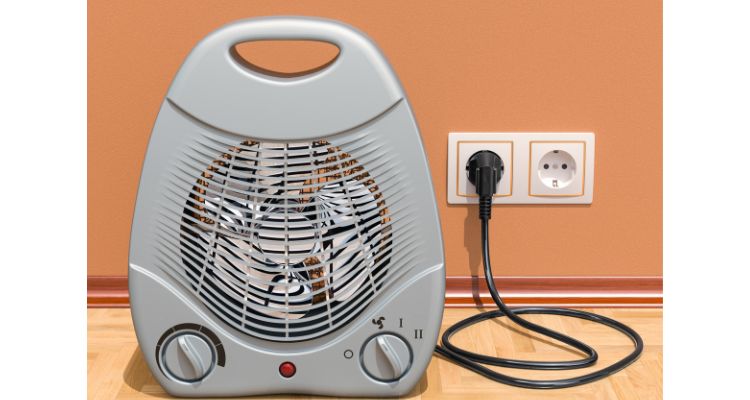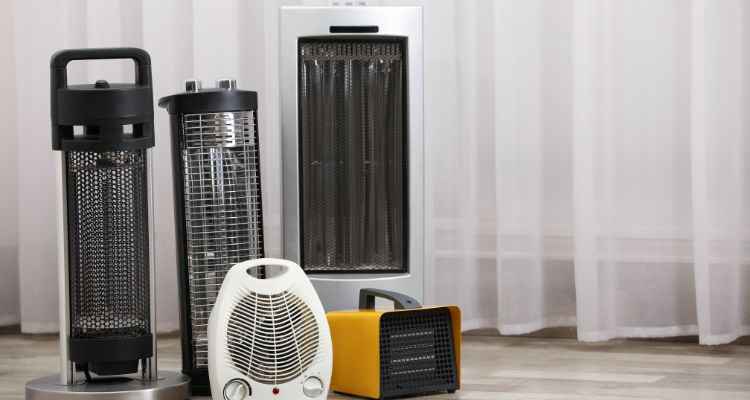Exploring the benefits of electric heaters can be a game-changer for those seeking efficient and eco-friendly heating solutions. In fact, when it comes to choosing a heater, many people’s #1 concern is…The benefits of electric heaters.
They often wonder if they’re worth the investment. But this is what separates an informed consumer from someone who might end up spending more on inefficient or environmentally harmful alternatives.
Selecting an effective heating solution isn’t always easy, folks. Consider one camper who shared that after investing in a gas heater for his outdoor adventures… He ended up dealing with constant maintenance issues and fuel costs. Now he’s considering switching to electric but worries about upfront costs and effectiveness in cold weather.
No surprise there!
Table of Contents
- The Superior Efficiency of Electric Heaters
- Electric Heaters: A Safer Choice Over Gas Systems
- The Environmental Impact of Electric Heaters
- Maximizing Comfort: The Key Benefits of Electric Heaters
- Understanding the Financial Aspects of Electric Heaters
- Identifying Situations Where Electric Heaters May Not Be Suitable
- Choosing the Perfect Electric Heater for Your Outdoor Adventures
- Conclusion
The Superior Efficiency of Electric Heaters
Electric heaters, including models such as space heaters and electric radiators, stand out in the realm of heating systems. Their advantage lies in their remarkable efficiency when converting electrical energy into heat. In contrast to gas systems that can lose up to 20% of their input power due to flue and pipe losses, electric heaters convert almost all the electrical current they draw into thermal energy.
This characteristic is particularly beneficial during camping trips, where resources might be limited. The efficient use of a small amount of electricity allows an electric heater to generate ample heat quickly, making them ideal companions on off-the-grid adventures.
Uniform Heating: More Than Just Comfort
Our range of electric heaters, including immersion heaters and underfloor heating, is designed specifically for uniform distribution. This feature ensures even dispersion across all areas within their reach, eliminating cold spots or unevenly heated zones. You can enjoy comfortable warmth throughout your living quarters or tent site.
Beyond comfort, maintaining an optimal indoor environment while camping outdoors becomes significantly easier thanks to the consistent temperature regulation capability inherent in many modern-day room-heating appliances like these.
Economic Advantages: The Bigger Picture
In terms of initial investment costs, some variants, like certain high-end boilers, may seem pricier than traditional alternatives using combustion-based solutions (gas). However, considering long-term operational expenses tells a different story altogether.
Moving forward, we will continue to explore the benefits and potential challenges surrounding the adoption of various kinds of Outdoor Direct products to ensure you are well-equipped to make the best decisions that meet your unique needs and circumstances, wherever your adventure takes you next.
Electric Heaters: A Safer Choice Over Gas Systems
In the world of outdoor heating solutions, safety is a critical factor. Here’s where electric heaters truly shine in comparison to gas systems.
The ease with which one can install an electric heater is worth noting. While setting up a gas system often requires professional intervention due to potential hazards, most electric heaters are essentially plug-and-play devices. This simplicity not only reduces accident risks during installation but also makes them appealing for those seeking safe and convenient heating options outdoors.
Potential Hazards Linked to Gas Heating Systems
Certain inherent dangers come along with using gas heating systems that are virtually non-existent when you opt for electric heat. One such risk includes carbon monoxide poisoning – a silent yet lethal consequence of incomplete combustion within these appliances.
Emphasizing the seriousness associated with faulty or improperly used gas-based appliances.
Safety Assured With Electric Heaters
In stark contrast, the electrical energy utilized by electric heaters does not involve any form of combustion; hence, there’s zero chance of producing deadly gasses like carbon monoxide. Additionally, unlike certain types of gas units, they don’t produce open flames – effectively eliminating fire hazards as well as risks related to burns and explosions caused by fuel leaks.
While the majority involved central units, including boilers and water heater failures typically seen in traditional fossil-fuel methods.
This further underscores how opting for modern technology-driven products like high-efficiency room heaters ensures safer warmth generation, whether at your patio party or off-the-grid camping adventure.
The Environmental Impact of Electric Heaters
As electric heaters become more commonplace, the question of their environmental impact arises. But what is their environmental impact? The U.S. Energy Information Administration (EIA) provides some insight:
In essence, this means that these devices operate with high efficiency and produce minimal waste compared to traditional gas systems.
Embracing Green Energy Solutions
Moving towards green technologies like electric radiators or space heaters isn’t just about keeping warm during camping trips. Opting for eco-friendly alternatives like electric radiators or space heaters is an excellent way to lessen our environmental impact.
- Selecting renewable sources for generating electricity helps reduce emissions even further.
- Avoidance of harmful gases associated with combustion-based heating methods, such as carbon dioxide, ensures cleaner air quality outdoors.

Larger Implications on Industrial Sectors
Beyond personal use at home or while camping, opting for environmentally friendly options can influence larger-scale changes within industrial sectors too.
Consider industries using conventional boilers, which consume more resources and emit pollutants – shifting to efficient electric boilers could result in significant reductions in greenhouse gas emissions.
By making the switch to renewable energy sources, we can not only conserve natural resources but also contribute to reducing the effects of climate change caused by excessive emissions from non-renewable fuels.
Maximizing Comfort: The Key Benefits of Electric Heaters
Explore the benefits of electric heaters: superior efficiency, safety advantages, and an eco-friendly impact. Ideal for outdoor settings and long-term savings.
Unraveling the Variety of Electric Heaters for Camping
The camping experience can be significantly enhanced with electric heating systems, which provide comfort in varying weather conditions. The question is – which type should you choose?
Storage Heaters: Constant Heat Source Explained
A storage heater might just be your ideal companion if a continuous heat supply is what you seek during your outdoor adventures. These heaters cleverly store thermal energy when electricity costs are low and release this stored warmth steadily throughout the day.
Diving into Heat Pumps – Efficiency Meets Low Operating Costs
If efficiency paired with economical operation appeals to you, then it’s worth considering heat pumps as part of your camping gear. Unlike traditional room heaters that generate heat directly from an electric current, these units extract external ambient or ground-sourced heat and amplify it before delivering it indoors.
Moreover, there are two more options—space heaters and underfloor systems—that offer unique advantages.
- Space Heaters: Compact yet potent enough to warm up small spaces quickly; they’re perfect if portability ranks high on your priority list.
- Underfloor Systems: An excellent choice for those who don’t want to compromise luxury even when out in nature; imagine gentle warmth rising from beneath.
When choosing between different types of electric radiators or any other form of heating system, such as immersion heaters or boilers, consider factors like budget constraints, environmental impact, installation complexity, and maintenance requirements.
Finally, remember that no matter how efficient an option may seem initially, an informed decision based on personal needs always proves beneficial over time.

Understanding the Financial Aspects of Electric Heaters
Investing in electric heating systems can seem like a significant expense at first glance. Nevertheless, don’t let the initial expenditure put you off from looking into their long-term advantages.
To help make sense of these costs and savings, here are some key points to consider when evaluating electric heaters for your outdoor or domestic needs.
1. The Efficiency Factor: Lower Operating Costs
The operational efficiency of electric heat is unparalleled – nearly 100% efficient. This means that almost all electrical energy consumed by an electric heater gets converted into useful heat with minimal loss – leading directly to lower operating expenses over time.
Beyond just saving on monthly bills, there’s also less maintenance required due to fewer parts within an electric circuit that could potentially break down or need replacement. Therefore, additional savings come in the form of reduced repair and servicing fees, too.
2. Lifespan Benefits: Long-Term Savings
Apart from being highly efficient operationally, another financial advantage lies in their lifespan potential. Generally speaking, because they experience less wear-and-tear due to simple operation mechanisms compared with their non-electric counterparts, they can extend service life while diminishing maintenance requirements simultaneously.
- This extended lifespan translates into considerable cost-savings over time as well.
- You might pay more initially when purchasing an electric heater, but always remember to factor in its longevity along with those diminished upkeep demands before making any decisions based solely on purchase price alone.
- Your investment now may lead to substantial returns later.
4. Balancing Initial Investment Against Future Gains
Making smart choices about home heating isn’t simply about looking at sticker prices; it requires understanding how each system works, its strengths and weaknesses, and then aligning those characteristics with your specific situation, whether it’s for outdoor camping trips or everyday domestic purposes, so you get maximum value out of it.
Identifying Situations Where Electric Heaters May Not Be Suitable
Electric heaters may not be suitable for all scenarios, so it’s important to explore other options that could better serve the situation. Certain circumstances may call for different heating solutions.
In this section, we’ll explore scenarios where electric heat might fall short and other options could be more beneficial.
Limited Power Supply: The Off-the-Grid Dilemma
The beauty of camping off-grid can quickly lose its charm when you don’t have access to electricity. Without a power supply, your trusty electric heater becomes just another piece of equipment taking up space in your backpack or RV.
Solar-powered alternatives exist, but their performance is often insufficient during colder months due to shorter daylight hours and weaker sunlight intensity. A generator could solve the problem, but it’s an additional cost, plus there’s the hassle of carrying extra fuel along with it too.
Cold Weather Performance: When Mother Nature Turns Up The Cold
While our beloved room heaters excel at providing warmth in mild-to-moderate winter climates, extreme cold conditions present a challenge that even high-efficiency models struggle against, especially if used outdoors. Open spaces such as campsites or larger areas like cabins suffer from rapid heat loss, making it hard for these devices to maintain comfortable temperatures consistently.
Adequate Insulation: Your Shield Against Heat Loss
- Poor insulation compounds any heating system’s struggles, including those powered by electrical energy – whether they’re immersion heaters, storage ones, or space units – resulting in higher energy consumption and less-than-ideal comfort levels.
- To maximize effectiveness and achieve uniform heating throughout your living area while minimizing potential hazards associated with overworking appliances, improving insulation should always come before investing in new gear.
- This includes ensuring windows are sealed properly, doors aren’t letting drafts sneak through cracks around them, etc., which will go a long way in reducing unnecessary waste caused by escaping warm air, thus helping conserve precious resources, which is particularly crucial when operating in a limited capacity environment typical of most outdoor adventures.
Choosing the Perfect Electric Heater for Your Outdoor Adventures
Picking an electric heater that suits your outdoor needs can seem like a daunting task. But fear not, we’re here to guide you through this process.
1. Identify Your Heating Needs
Figuring out what your heating needs are is the initial step in selecting the ideal system. Consider factors such as how large a space will require heat and how often you’ll be using your heater – these are all crucial elements when making your decision.
If warmth on chilly evenings at home on the patio is what you seek, then compact room heaters could do just fine. However, if braving colder climates during off-the-grid camping trips is more up your alley, consider high-efficiency options like storage heaters or even heat pumps.
2. Assess Energy Efficiency Levels
An important aspect of any electrical device purchase includes assessing its energy efficiency levels – and electric radiators certainly stand out with their ability to provide uniform heating while minimizing heat loss, which proves particularly useful outdoors where temperatures may fluctuate frequently.
In terms of cost-effectiveness over time, despite higher upfront costs than some gas systems, electric boilers win hands down due to their superior energy-efficient performance, leading to ultimately lower operating expenses overall.
3. Consider the Environmental Impact.
A significant factor that should influence our choices regarding appliances, including outdoor heaters, involves considering their environmental impact. Electrically powered devices like immersion heaters convert almost the entire input electrical energy into usable heat without releasing harmful emissions, thus contributing towards cleaner air quality around us – something especially valuable while enjoying nature’s beauty outside.
4. Evaluate Safety Features
Safety considerations must always take precedence when selecting any appliance, let alone one generating substantial amounts of thermal output. Electric heating systems have inherent safety advantages compared to gas ones since they eliminate risks associated with carbon monoxide poisoning and others, thereby ensuring safer usage whether indoors or outdoors.
Conclusion
Electric heaters have emerged as an indispensable tool for outdoor enthusiasts, offering both warmth and comfort in the chilly aftermath of hunting sessions or during cold nights in the wilderness. Their superior efficiency and safety over traditional gas systems have made them an increasingly popular choice for campers.
Furthermore, while one must be conscious of their environmental footprint, electric heaters often have a lower impact than other forms of heating. Additionally, understanding their financial aspects can enable users to make informed decisions and choose the best heater suited to their needs.
However, like all tools, they’re not universally apt for all situations. Hence, it’s paramount to identify specific circumstances where other heating methods might be more appropriate. As outdoor adventurers continue to seek comfort without compromising safety or environmental responsibility, electric heaters, when chosen judiciously, can undoubtedly make the outdoor experience more enjoyable.

